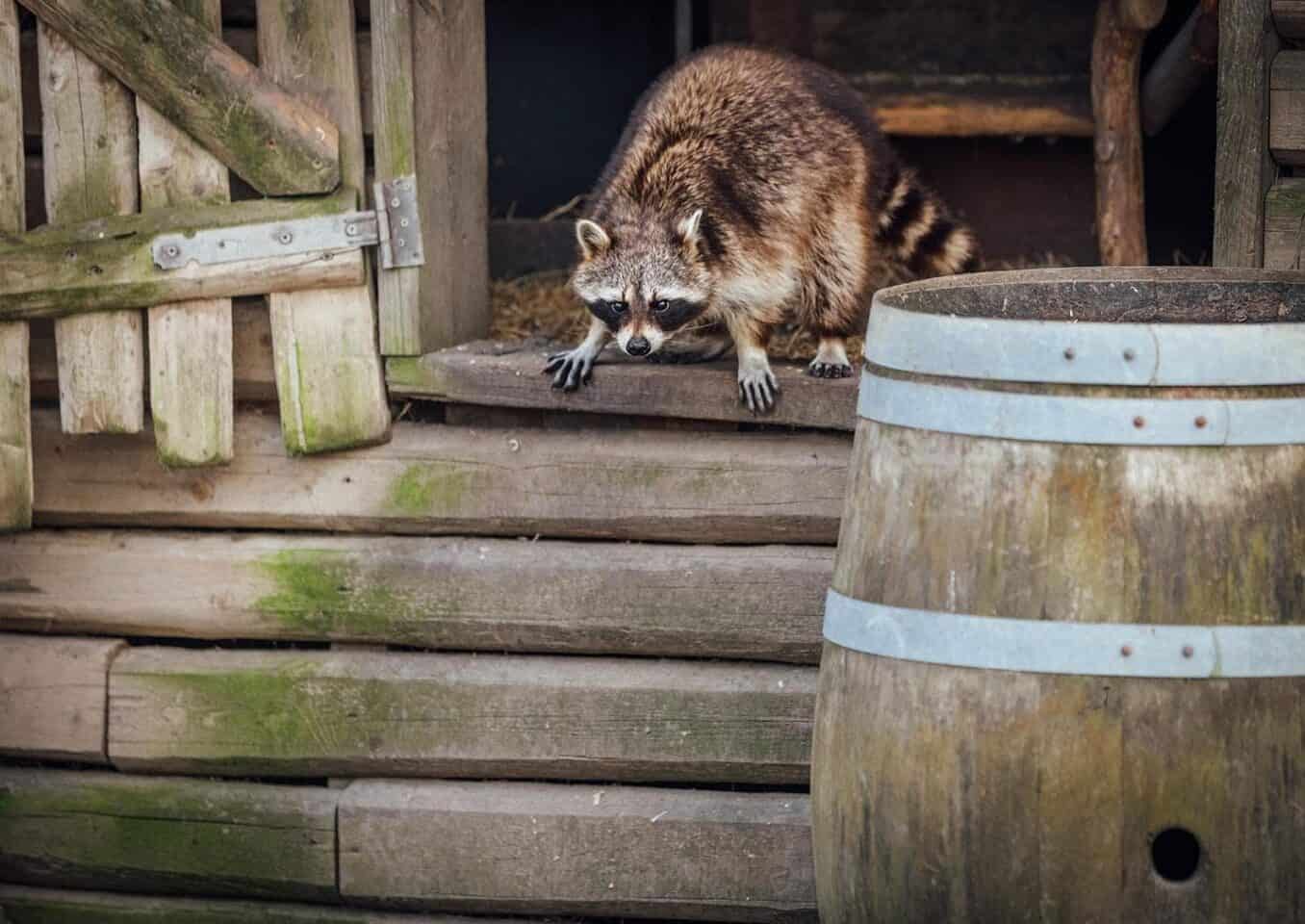If you keep backyard chickens, you know it’s very important to predator-proof your coop. But protecting your flock from raccoons is a bit more challenging than protecting them from other predators because raccoons are so darn smart.
Raccoons are more than smart. They’re also able to climb and dig very well and they use their front paws a lot like we humans use our hands, which is both creepy and cute. A chicken coop is a prime target for raccoons because they know it’s a source of relatively easy prey. Without your assistance, your chickens are simply no match for raccoons.

How Raccoons Hunt
When a raccoon gets into a chicken coop, it will normally kill several birds if it can reach them. The dead bodies will usually be left where they were killed, and not carried away. Instead of eating the whole bird or even most of it, raccoons will typically eat the bird’s innards and sometimes part of the chest.
Raccoons have incredible manual dexterity and can open latches and closures, dig under fences and runs, and reach their human-like paws through wire mesh that’s too small for their bodies to fit in. To keep raccoons out of your chicken coop so your flock is safe, you have to outsmart those furry masked bandits.
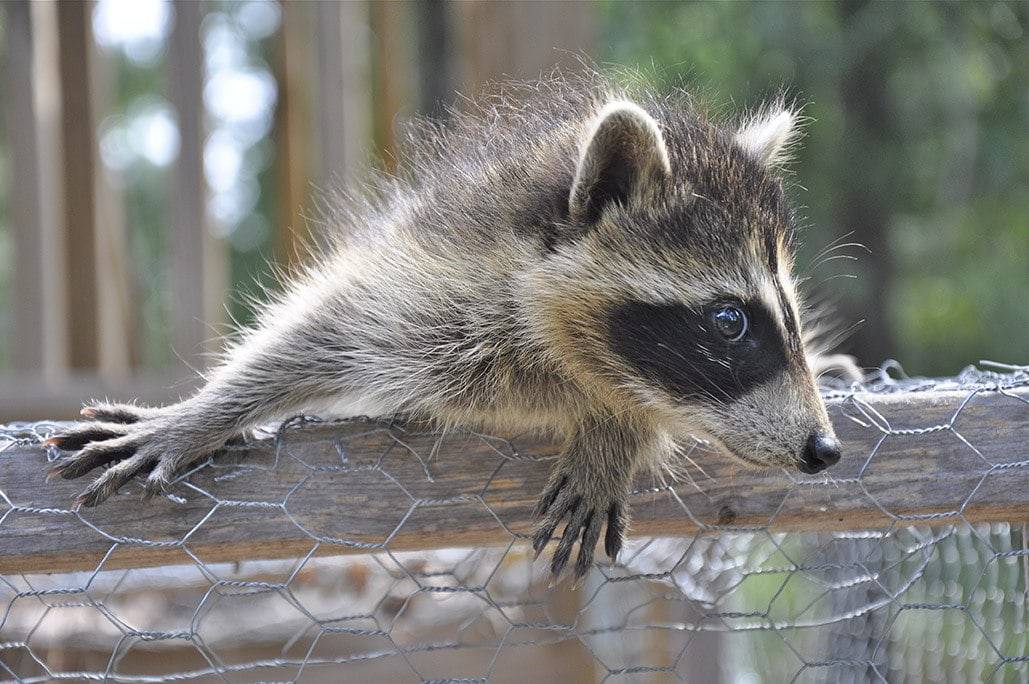

Keeping Your Chicken Coop Safe
Raccoons can be found just about everywhere in the United States so don’t think you’re lucky and don’t have them around. As nocturnal animals, raccoons do most of their hunting at night when they’re camouflaged by their distinct coats. If you’re like most people with chickens, you probably put your flock back inside the coop at night for safekeeping, which is exactly when those crafty and sneaky raccoons come out! Here are some steps you can take to keep your chicken coop safe from raccoons.
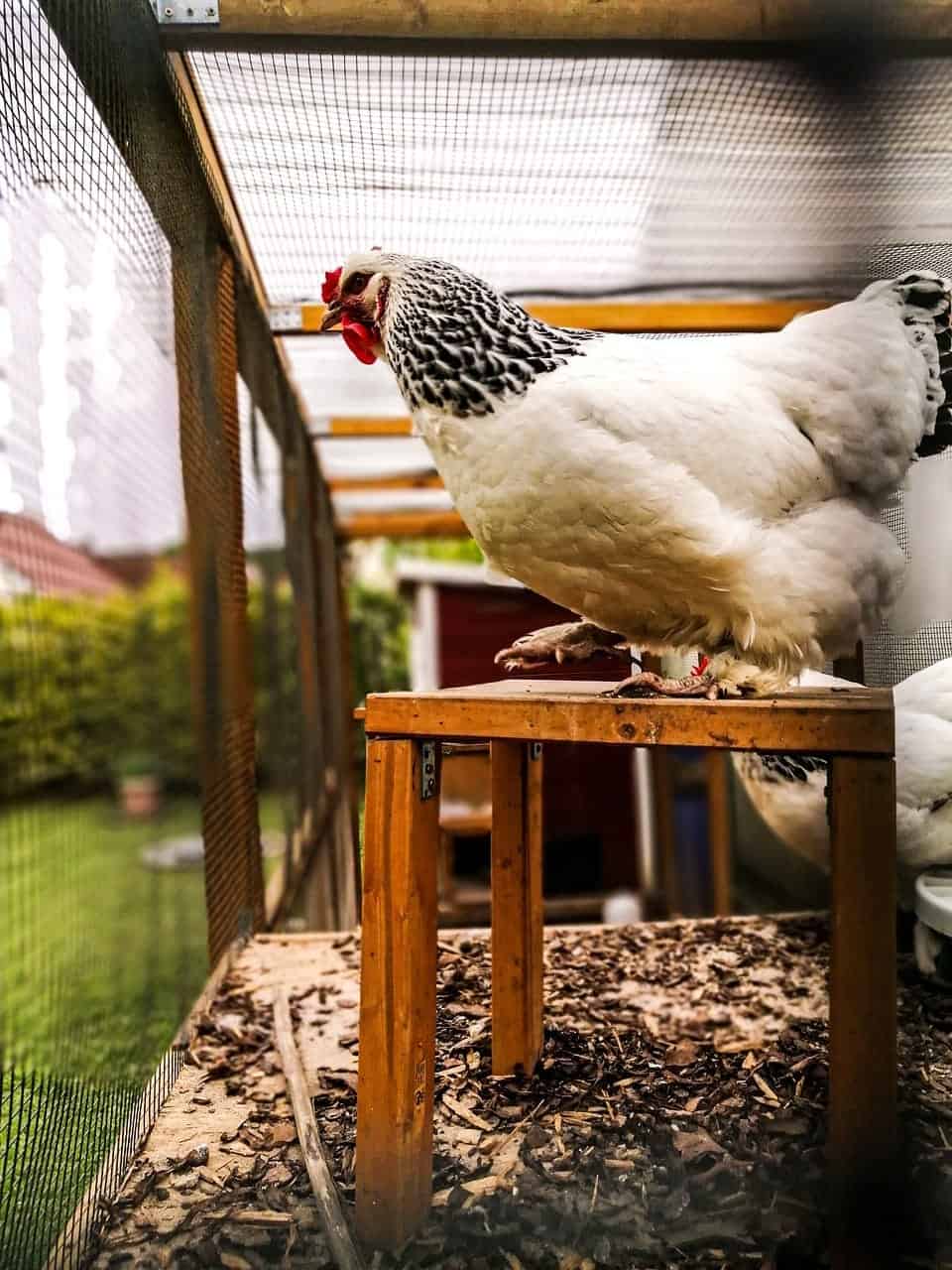
Make Your Yard Less Attractive to Raccoons
To lower the chances of raccoons even finding your chickens, make your yard less attractive to the animals. You can do this by making sure raccoons cannot get to any wild bird feeders you have or even the seed on the ground. If you have other animals like dogs or cats, do not leave pet food outside. The same goes for dishes of water because raccoons are attracted to water sources. In short, don’t leave anything out that raccoons may be attracted to.
Secure the Wire Mesh on Your Coop
Any wire mesh you have on your coop should be secured because raccoons will try to bend it or pry it off so they can gain access. Look for weak areas or places that the wire mesh isn’t secured well. Think like a predator would and look for any weak spots that could be breached.
Instead of using flimsy chicken wire that raccoons can breach, use something more durable like hardware cloth with a fine mesh that raccoons cannot reach through. Remember that chicken wire is designed to keep chickens in the coop and not to keep predators out.
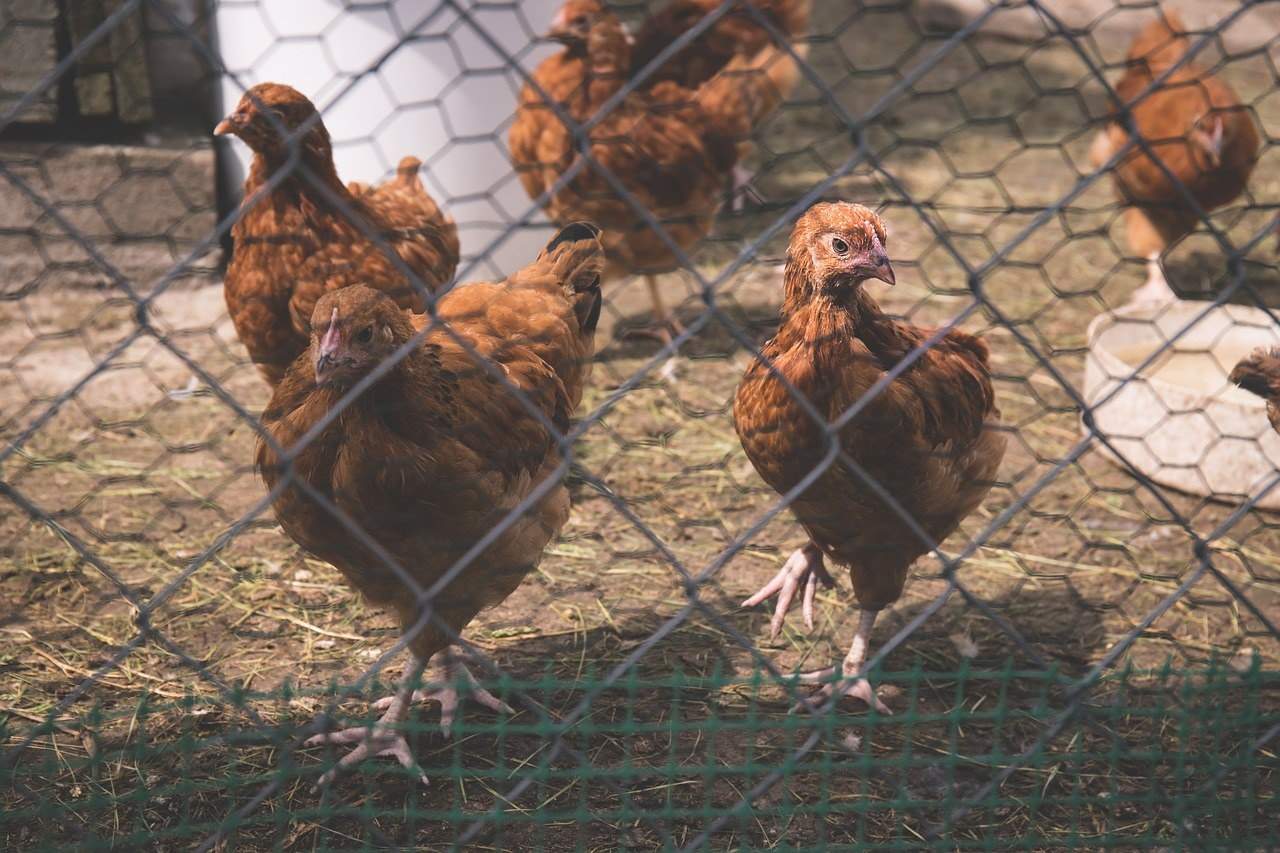
Use a Latch That’s Hard to Open
Raccoons are intelligent and can open simple latches without a problem. However, they don’t normally spend time trying to figure out how to open a complex latch. Use a latch on your coop that requires two or three steps to unlock.
The most popular two-step system includes applying a carabiner clip to the door latch. By adding a carabiner, the raccoons would have to open the carabiner while simultaneously removing it from the latch in order to gain access to the latch itself.
Surround the Coop Area With Foul Smells
Raccoons don’t like the smell of ammonia, garlic, cayenne pepper, and onions. You can keep the critters away from your coop by soaking rags in ammonia and putting the rags in your yard around the perimeter of your chicken coop.
You can also spray the outside of your coop with a homemade raccoon repellent. Just boil a gallon of water, add several cloves of garlic, a few onions, or a couple of hot peppers. Then simply put the mixture in a spray bottle and spray it around your chicken coop. Just be sure the repellent smells strong so it’s sure to keep raccoons away.
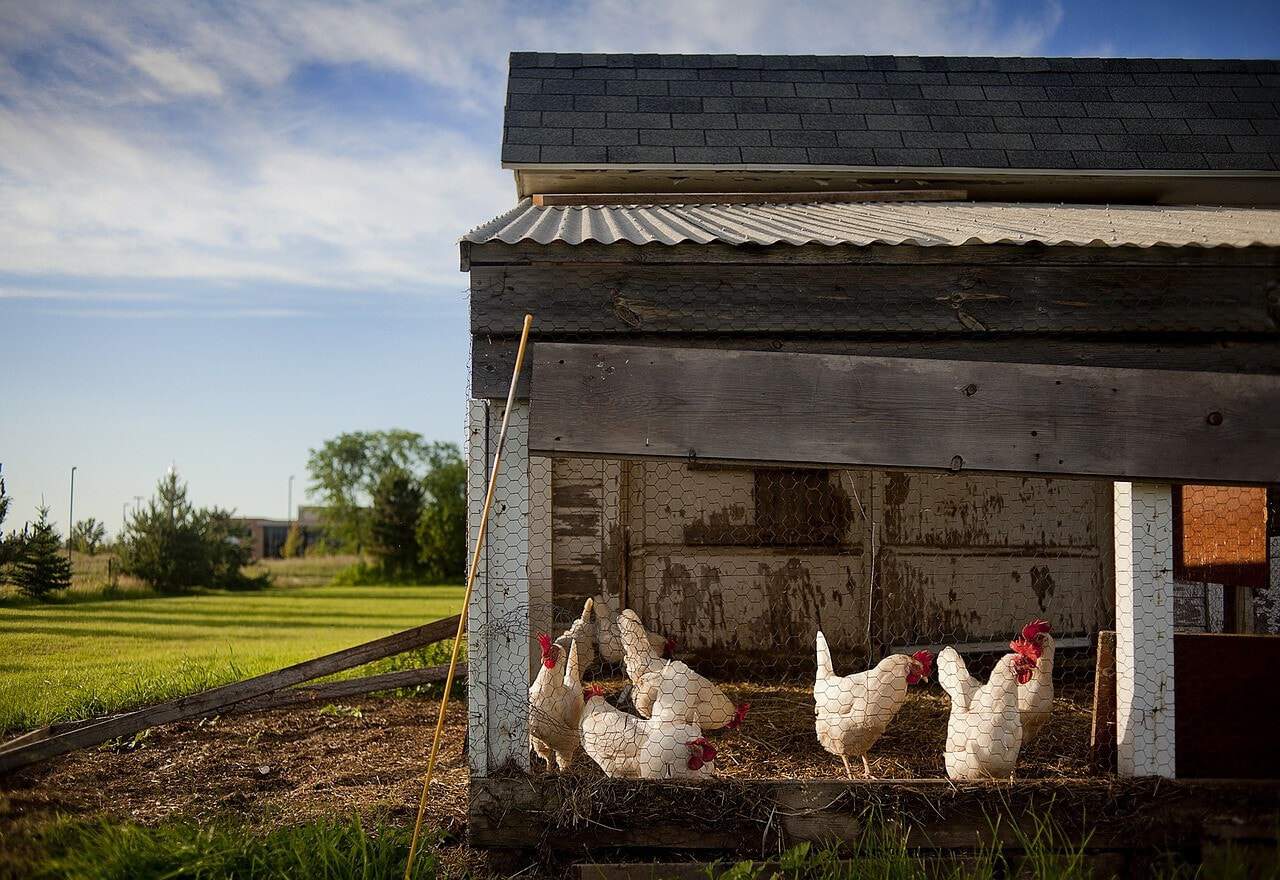
Install a Coop Apron
If raccoons cannot tear through chicken wire or breach the door latch, they may try digging their way into your coop. That’s why you should install a coop apron. This involves installing some PVC coated wire rolled fencing at the base of the coop all the way around the perimeter. This is easier to do than burying fencing material over a foot deep in the ground and it isn’t a costly project to undertake.
Mount a Predator Deterrent Light on the Coop
Raccoons are acutely aware of their surroundings and are always on the lookout for danger. That’s why it’s a good idea to install a predator deterrent light on your coop. This type of light emits two bright red LED lights that look like the eyes of a predator. The light should be placed at the eye height of raccoons so it’s easily seen and appears to be a dangerous predator.
When you follow these steps to secure your coop, your chickens should be safe from raccoons. If you still have problems with raccoons trying to get into your coop, find out if it’s legal in your state to humanely trap and relocate raccoons.
If humanely trapping and relocating raccoons is allowed, toss a couple of marshmallows in the back of a humane live animal trap and set it in your yard. When you trap a raccoon, relocate it to a wooded area a few miles from your property. If it’s not legal to do so, contact a wildlife rescue or animal control organization in your area to see what your options are.
Featured Image Credit: ShutterSparrow, Shutterstock
